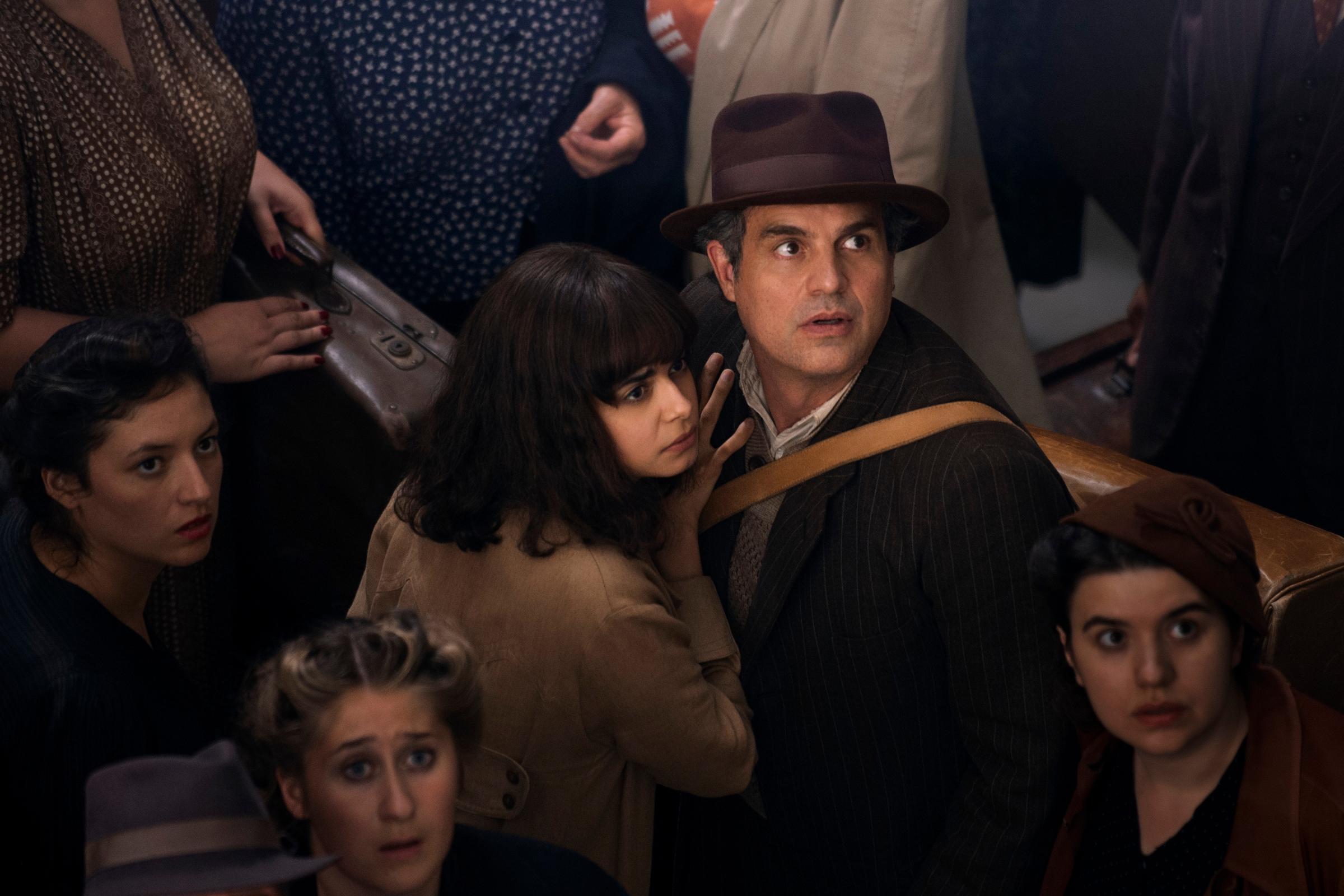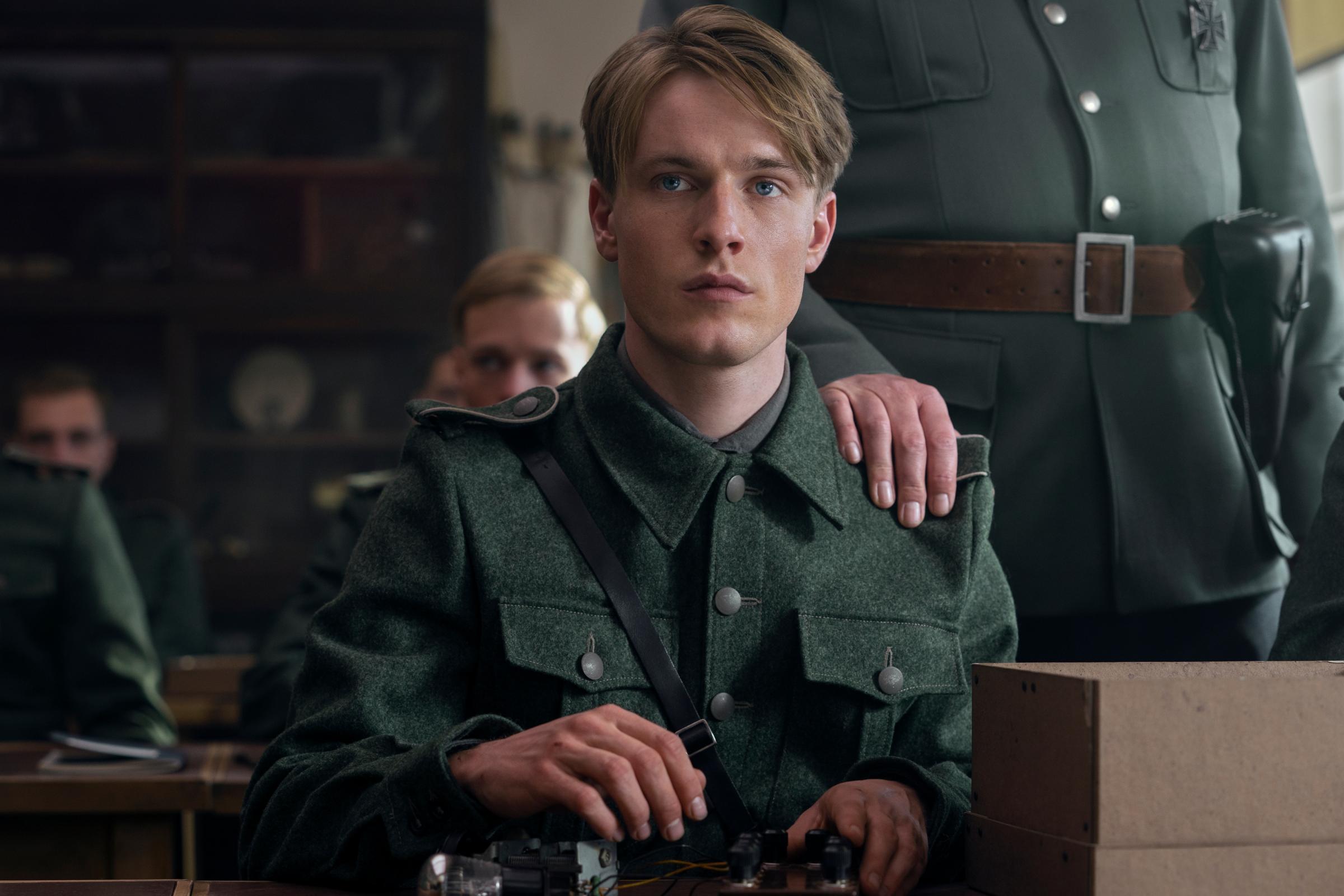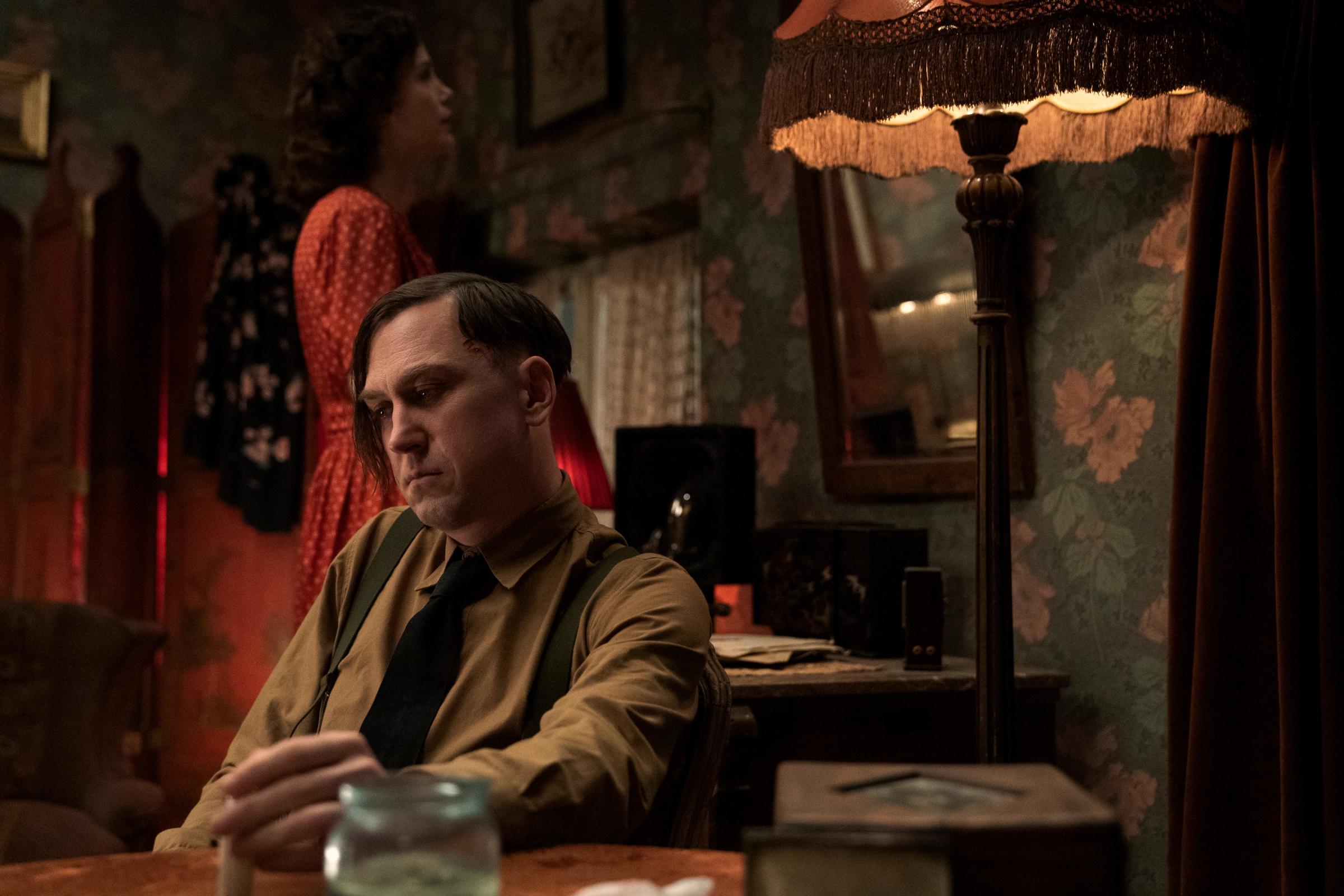Anthony Doerr’s All the Light We Cannot See might be the most widely acclaimed book of the past decade. It won a Pulitzer Prize and was shortlisted for a National Book Award. Barack Obama made time to devour—and recommend—it while he was still in the White House. The New York Times called the novel “hauntingly beautiful” and named it one of the 10 best books of 2014. But it wasn’t just a critical darling. All the Light became a cultural phenomenon, selling more than 15 million copies worldwide by the time Netflix greenlighted a TV adaptation in 2021. That series, which arrives on the streamer on Nov. 2, isn’t just inferior to the book; it’s a schmaltzy, incompetent, borderline offensive mess whose mere existence tarnishes the book’s legacy.
One clue that screenwriter Steven Knight (Peaky Blinders, See) and director Shawn Levy (Stranger Things, Free Guy) have done wrong by Doerr’s story, of a blind French girl and a brilliant orphan turned reluctant German soldier in bombed-out Brittany during the final months of World War II, is that they’ve whittled down the 544-page doorstop to a skeletal four episodes. Another is that, unlike so many powerful authors who’ve helped shepherd their novels to the screen, Doerr is not among the series’ producers. Not that these red flags alone can account for how many disastrous choices went into the making of this maudlin show. Knight’s script is particularly flimsy, shallowly skimming each character’s surface and failing to meaningfully address the big moral questions that come with depicting a Nazi combatant as a good person.

At least All the Light’s creators made one inspired decision, in casting Aria Mia Loberti, a newcomer with no formal training in acting, as heroine Marie-Laure LeBlanc. Like Marie, Loberti is sightless, but that shared experience only lays the groundwork for a magnificently present performance that draws out the intelligence and tenacity of a character who might otherwise have been reduced to a pitiable damsel in distress. Holed up alone in the walled city of Saint-Malo, where the Nazis maintained a stronghold for months after D-Day, Marie reads excerpts from Jules Verne’s 20,000 Leagues Under the Sea over shortwave radio. The broadcast serves dual purposes. She hopes to reach her father Daniel (Mark Ruffalo) and uncle Etienne (Hugh Laurie), from whom she’s been separated. But she’s also doing courageous, illegal work for the Resistance, using the classic novel to send coded messages to Allied forces.
Elsewhere in Saint-Malo, at the crumbling hotel where his ever-shrinking regiment is billeted, Werner Pfennig (Dark star Louis Hofmann) listens to Marie’s broadcasts while the bombs fall. These lonely teenagers have something in common: they both used to stay up late listening to a mysterious professor deliver florid monologues to children about science and philosophy on the frequency Marie is now using. The human brain exists within the utter darkness of the human skull but, he explains, has the capacity to illuminate the entire world: “Even in complete darkness there is still light inside your mind.” The professor’s humanism has sustained Werner, who grew up in an orphanage before his prodigious skill with radios earned him a place at an exclusive and brutal Nazi military school, through an “old man’s war” that he despises. Soon, one of the show’s many interchangeably sadistic Nazi officers orders him to track down Marie.

The two seem destined to meet, and you’d better believe that in a story this predictable they will, but under what circumstances? Will Werner save Marie or bring about her demise? And will he get to her before Nazi jewel plunderer Reinhold von Rumpel (Lars Eidinger) comes looking for the legendary—and legendarily cursed—diamond that Daniel rescued from the natural history museum where he worked before the Germans sacked Paris? These questions should be enough to give the show some suspense. But poorly paced scripts, cluttered with inopportune flashbacks to Marie and Werner’s childhoods, kill any momentum it generates in the present.
Even more distracting is the show’s squandering of a talented cast. Laurie is fine but underutilized as a turn-of-the-century dandy shellshocked into seclusion by the horrors he experienced in the First World War—an intriguing character, but one viewers barely get to know. Eidinger, a wonderfully weird German actor best known in the U.S. as a star of Babylon Berlin who’s also a favorite of Irma Vep auteur Olivier Assays, feels wasted in the Christoph-Waltz-lite role of a pithy, cutthroat Nazi. Worst of all is the conspicuous miscasting of Ruffalo, who has done breathtakingly great work in recent titles like I Know This Much Is True and Dark Waters but is breathtakingly bad here. Actors get too much blowback for imperfect accents, but Ruffalo’s English pronunciations are so mannered, I thought at first that the character was affecting a silly voice. That artifice infects all aspects of what becomes a stiff performance as Marie’s loving Papa. It’s also worth asking why French characters are speaking British-accented English in the first place. (The Nazis, for their part, speak German-accented English.)

Theirs are not the only underwritten characters. Loberti gives Marie a spark of vitality, but on paper she is one-dimensionally brave and good. Knight’s script does a more dangerous disservice to Werner, despite Hofmann’s competent portrayal. Like Doerr’s book, All the Light asks viewers to empathize with a character who wore the Nazi uniform and played an active, if grudging, role in Hitler’s atrocities—a leap that will be even harder to make now, amid the rise of right-wing authoritarianism in the U.S. and abroad, than it would’ve been for readers a decade ago. Oddly, the series barely mentions, and at no point truly reckons with, Werner’s culpability. In one early scene, a French resident of Saint-Malo hurls invective at the high-minded soldier as he walks the debris-littered streets, and I got the sense that I was supposed to feel sorry for him. How dare the citizens of occupied France judge a Nazi by his swastika armband!
The resulting series is at once morally simplistic—all characters are framed as either purely good or wholly evil—and alarmingly insistent that there were, well, “very fine people on both sides” of the Western front. Instead of locating any real insight in Marie and Werner’s story, Knight offers empty koans and self-satisfied truisms: “Everything has a voice. You just have to listen.” “Don’t you want to be alive before you die?” “Some secrets are better kept secret.” And, of course, “the most important light is the light we cannot see,” which nods to Marie’s blindness as well as Werner’s existence as an enlightened soul hidden amid the darkness of the Reich.
Beyond the knowledge that not all Nazis enjoyed being Nazis, I’m not sure what we’re supposed to take away from this series that seems so convinced of its own importance. Not just a bungled literary adaptation, but also a pointless drama that borrows emotional weight from the real history of one of humanity’s darkest hours, All the Light We Cannot See is doubly disappointing.
More Must-Reads from TIME
- Caitlin Clark Is TIME's 2024 Athlete of the Year
- Where Trump 2.0 Will Differ From 1.0
- Is Intermittent Fasting Good or Bad for You?
- The 100 Must-Read Books of 2024
- Column: If Optimism Feels Ridiculous Now, Try Hope
- The Future of Climate Action Is Trade Policy
- FX’s Say Nothing Is the Must-Watch Political Thriller of 2024
- Merle Bombardieri Is Helping People Make the Baby Decision
Contact us at letters@time.com